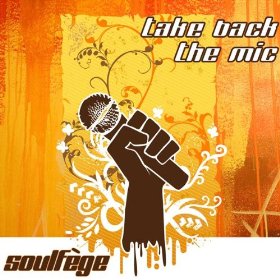Tomorrow evening’s kickoff event to Take Back the Mic marks the start of a nationwide community media campaign with music, storytelling, and interactive new media at the Ashkenaz in Berkeley.
Musician and radio host Derrick Ashong, who is organizing the project with author and musician Aaron Abelman, describes Take Back The Mic as “a new youth and young adult centered cultural movement. Via innovative uses of technology coupled with the power of local networks of youth, community organizations, educational institutions and businesses, TBTM will help to develop a new generation of young people armed with the tools to tell their own stories using digital and social media.”
The idea, Ashong told the Guardian, is to bring environmental justice issues to the fore by joining with impacted communities and harnessing new media, music, and the Internet to “share the world through their eyes.” In the Bay Area, the effort has grown out of a partnership between CommuniTree, the Local Clean Energy Alliance, Bay Localize, the Greenlining Institute, the Ella Baker Center, and a number of local environmental and community organizations.
The nationwide campaign will partner with community groups in Los Angeles, Chicago, Boston, and North, NJ to launch similar efforts, says Ashong, a Harvard-educated musician who is originally from West Africa.
The Ashkenaz event will feature Ashong’s band, Soulfège, as well as Audiopharmacy, Seasunz & Ambessa FiyaPowa, the Aaron Ableman Ensemble, Sunru and DJ Divinity, as well as storytelling by representatives from Bay Area social and environmental justice movements. People are encouraged to bring their own recording devices, like Flip camcorders and iPhones, to shoot clips and upload them online for everyone to view. Doors open at 7:30 p.m. and the show starts at 8. It’s $8 before 8 p.m., and $10 to $15 on a sliding scale after that.
The narrative of communities impacted by environmental justice problems “is a very complex and nuanced narrative,” noted Tara Marchant, Manager of the Green Assets Program for the Greenlining Institute, which advocates for green jobs and improved air quality in low-income communities such as East Oakland. “We’re really looking at how the excitement around this movement invites communities who don’t necessarily feel like they’re part of the conversation” to share their narrative with the world, she said.

